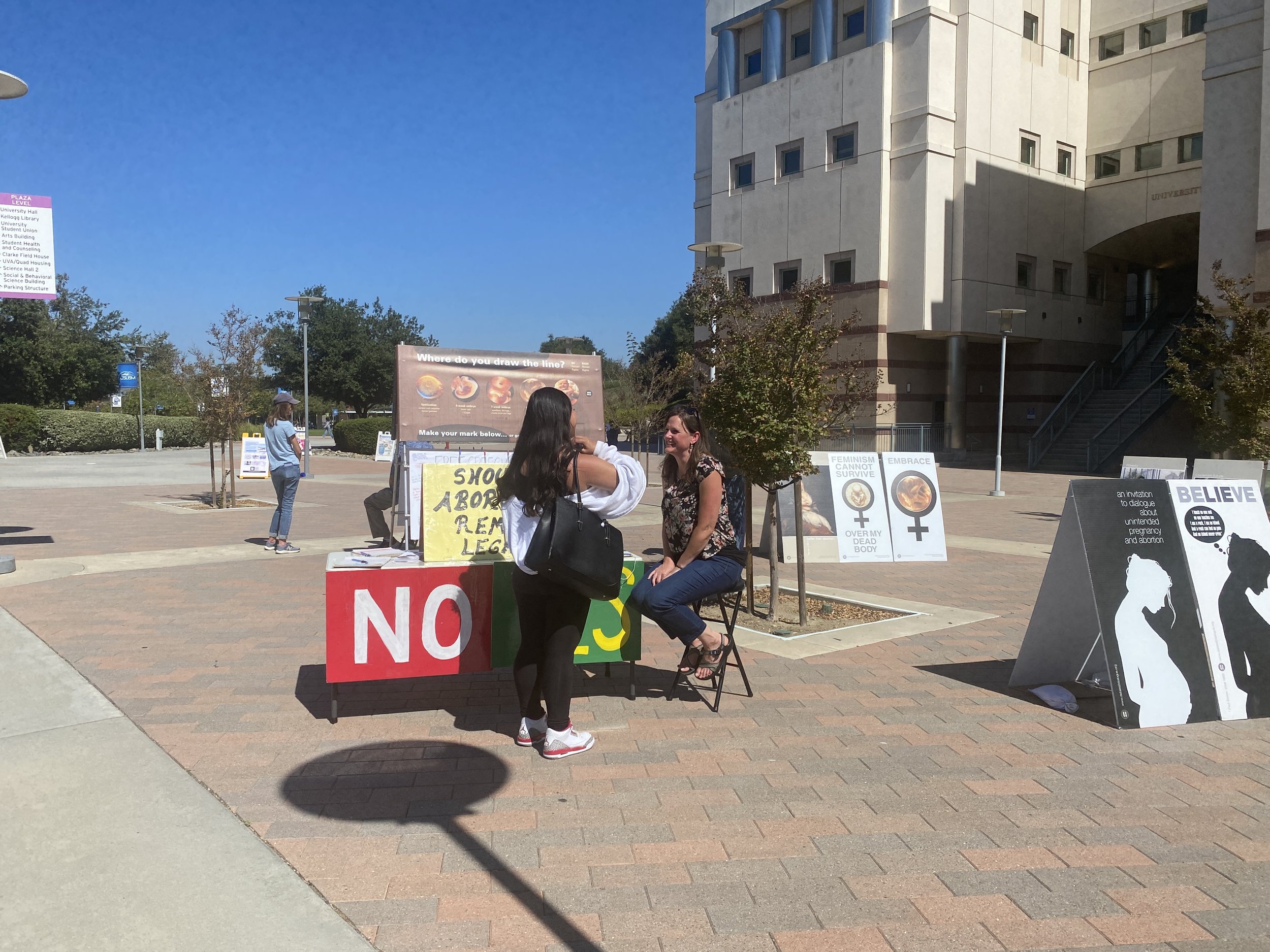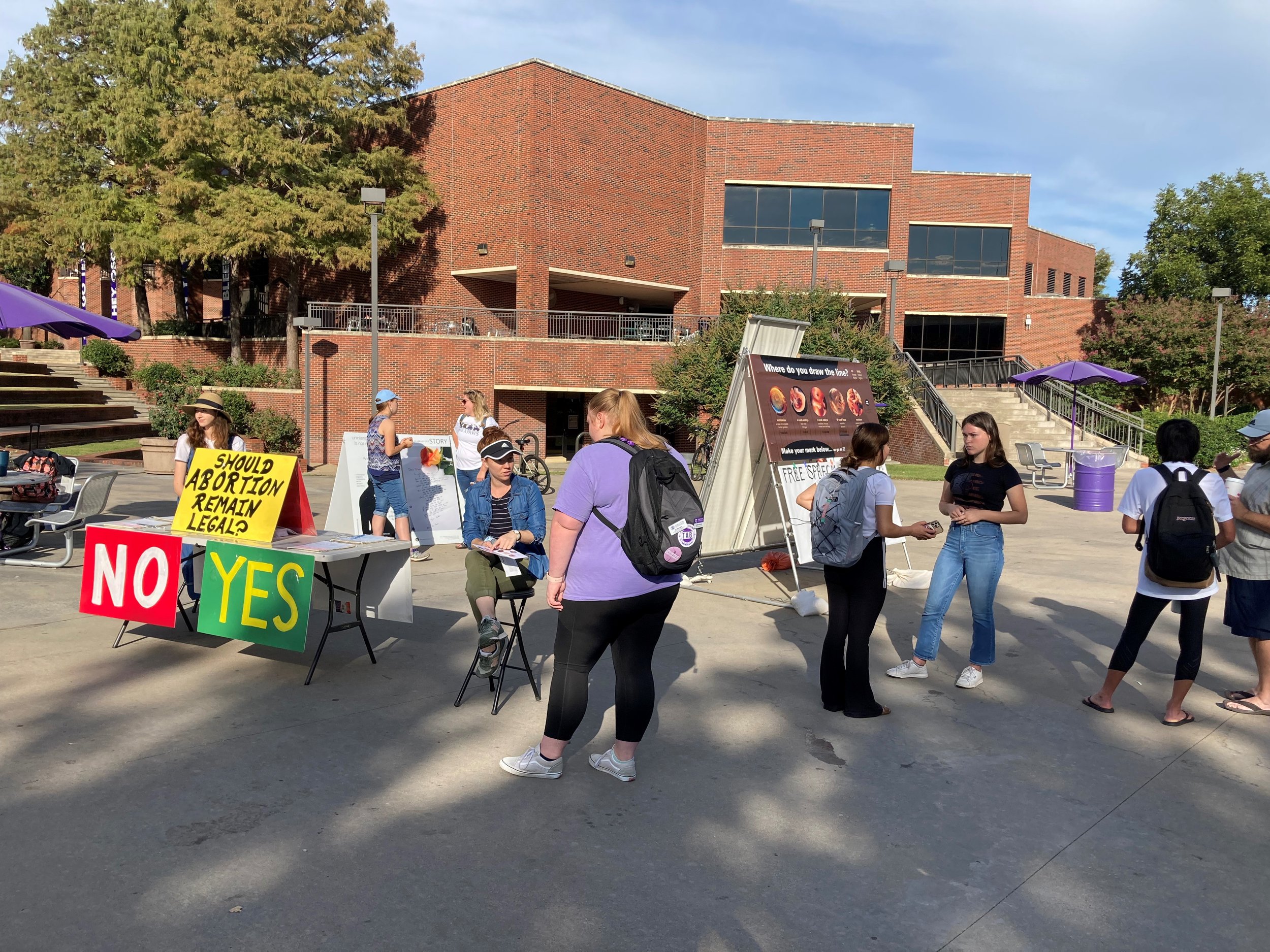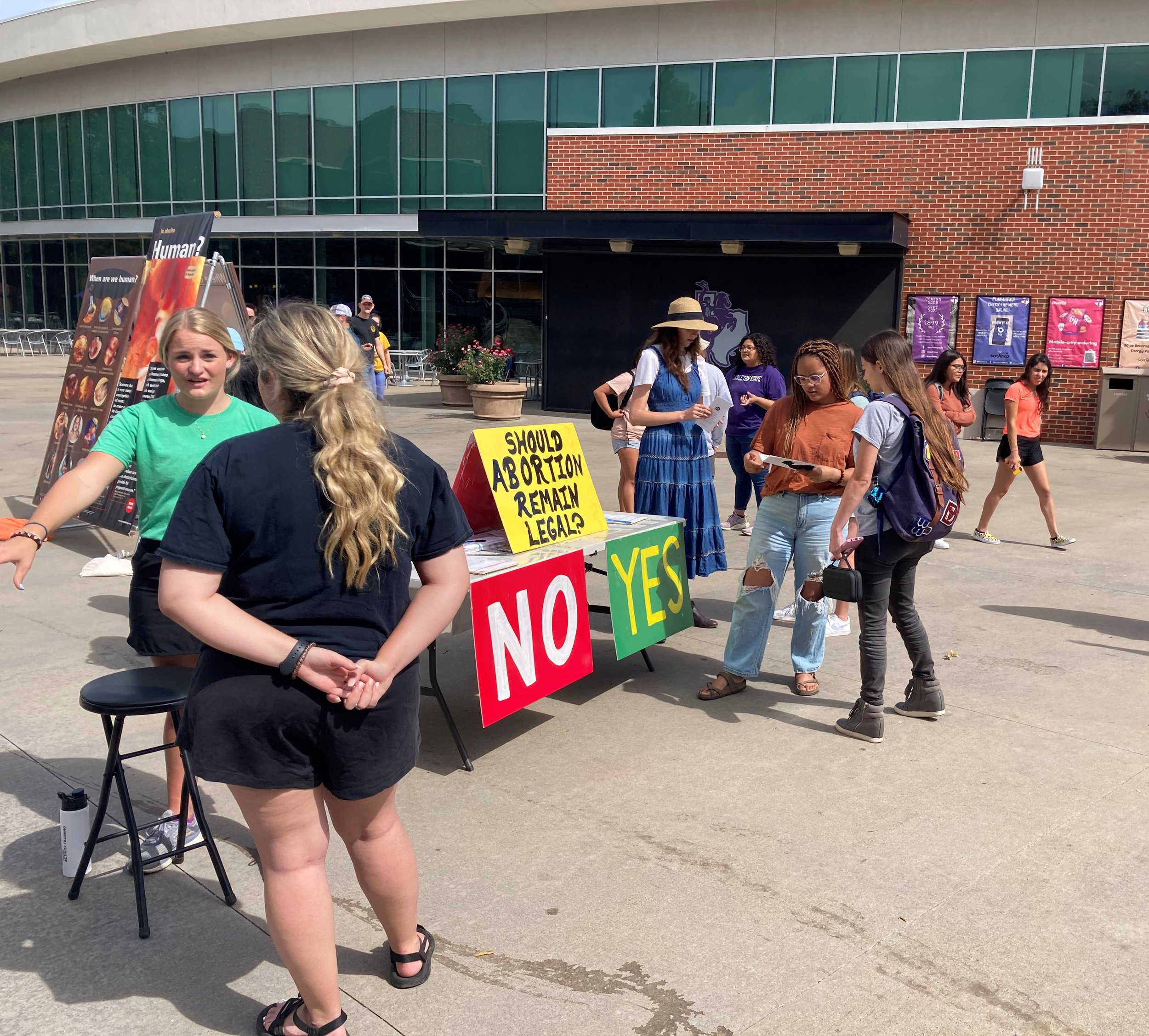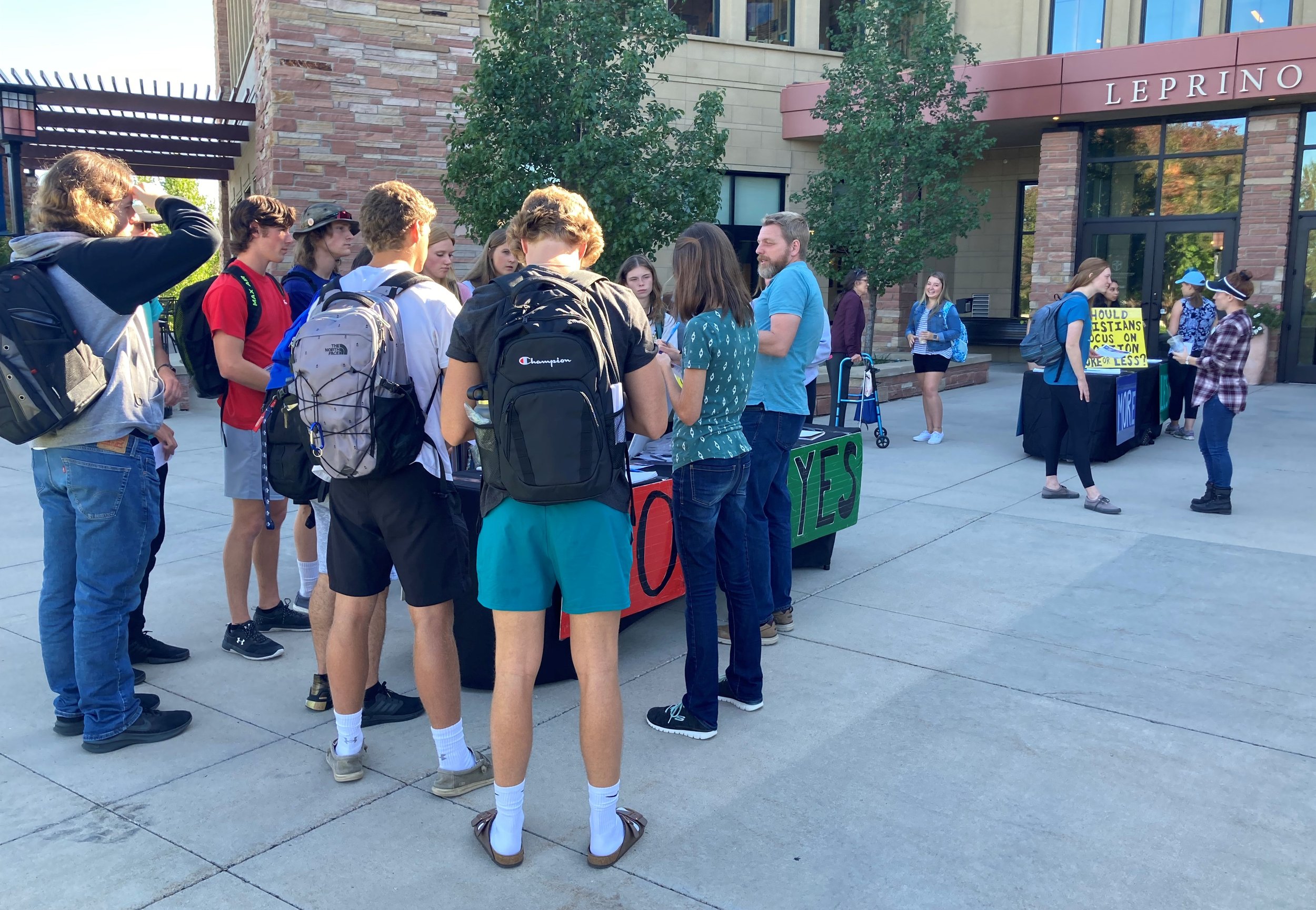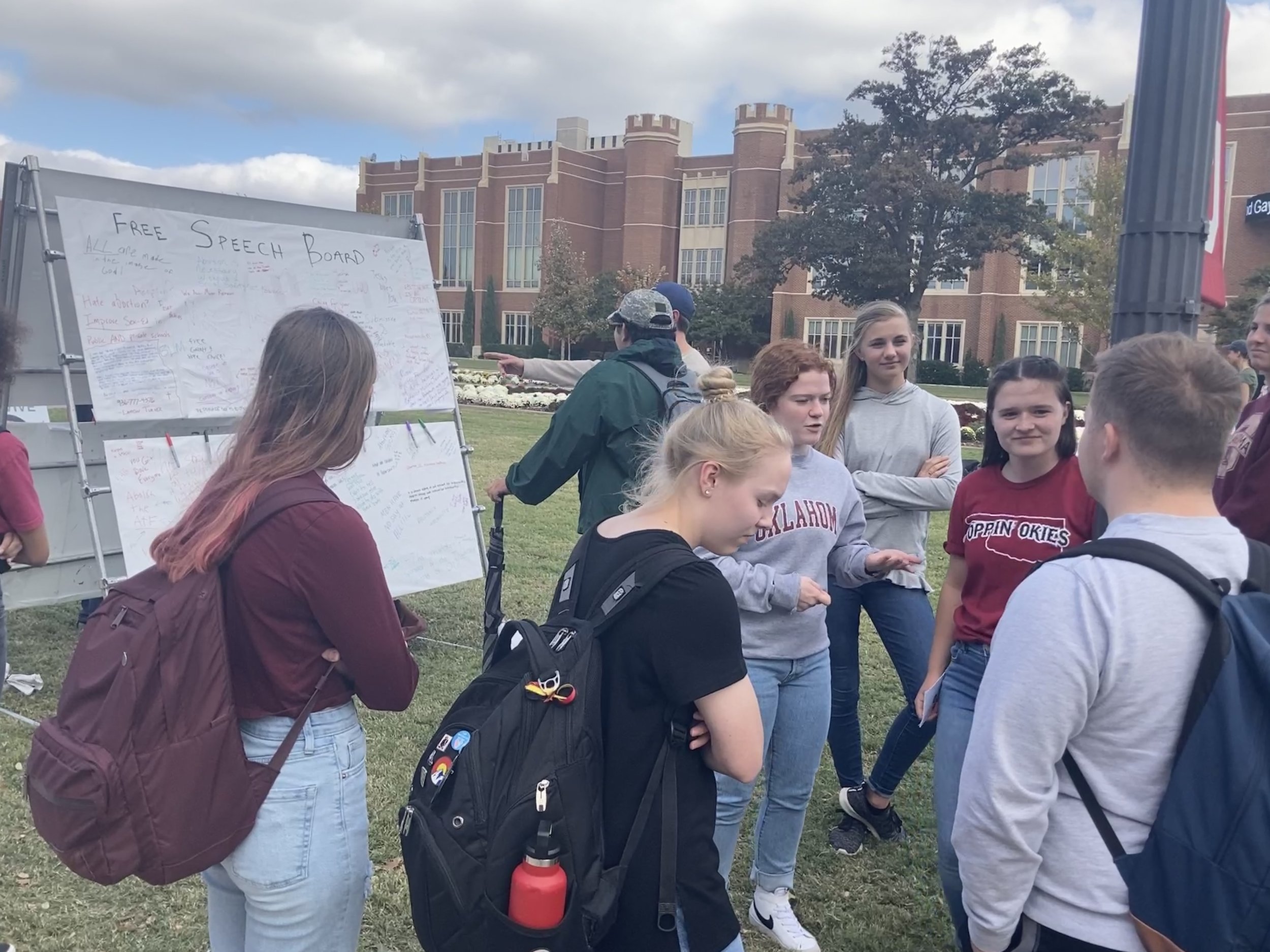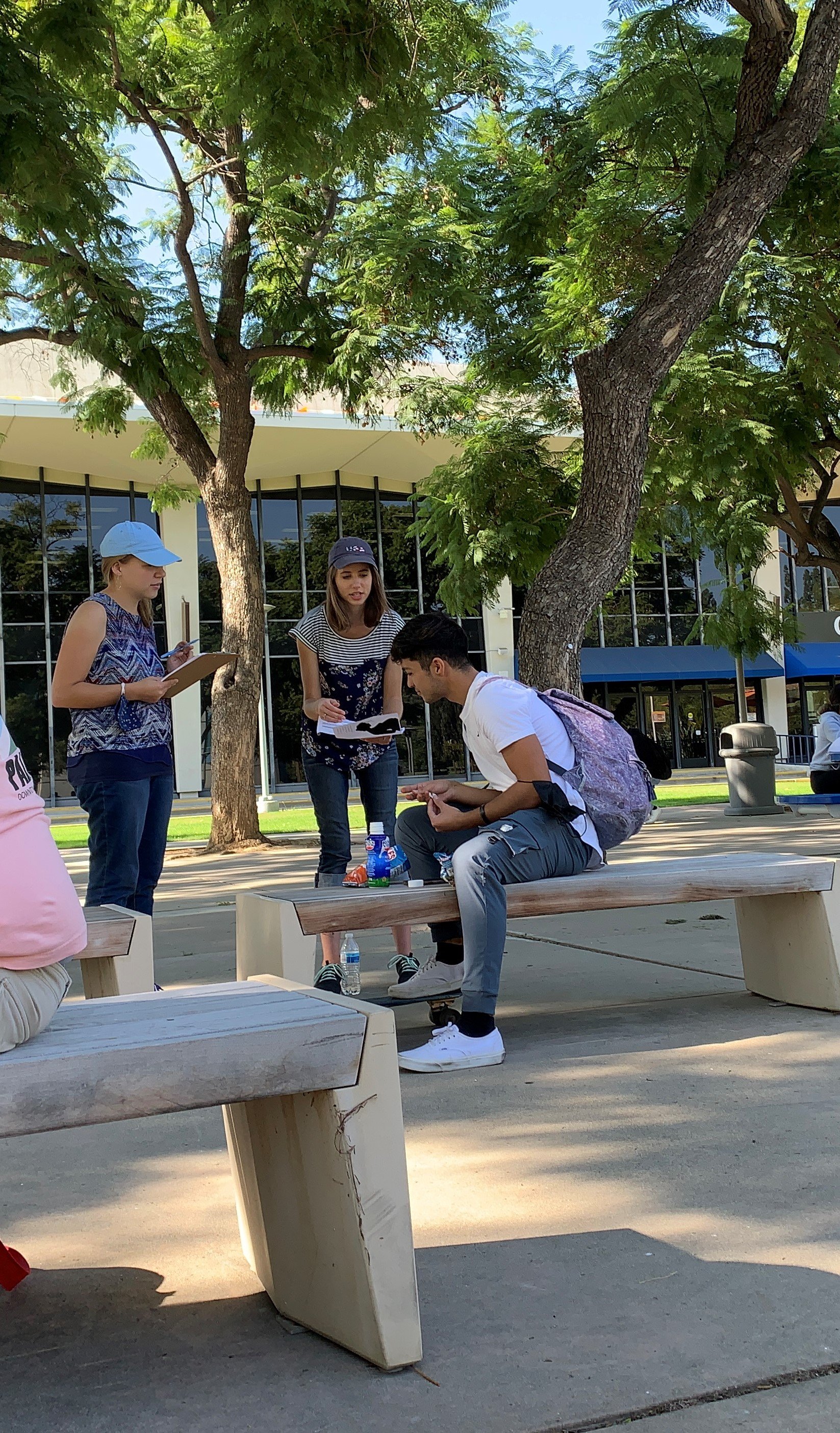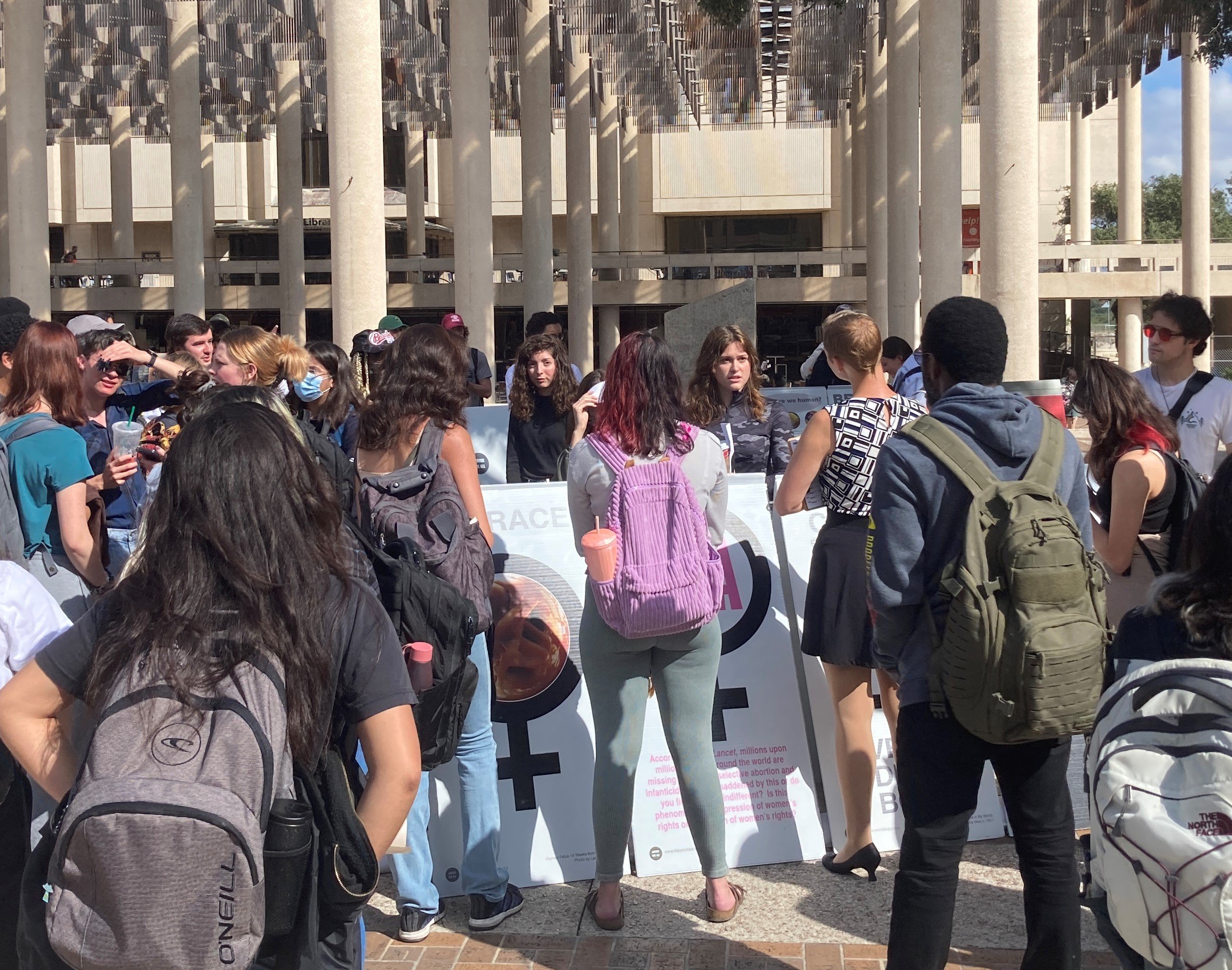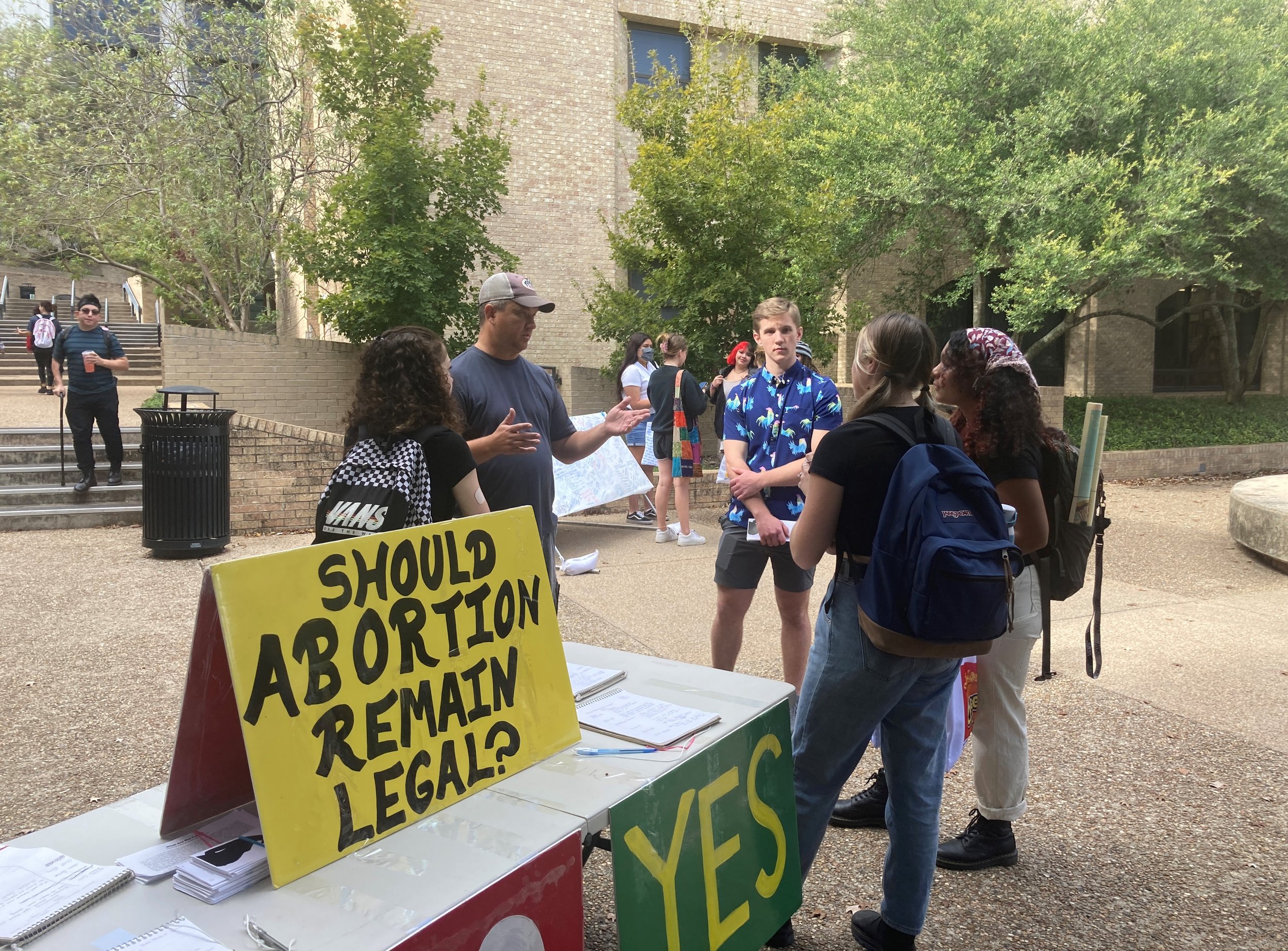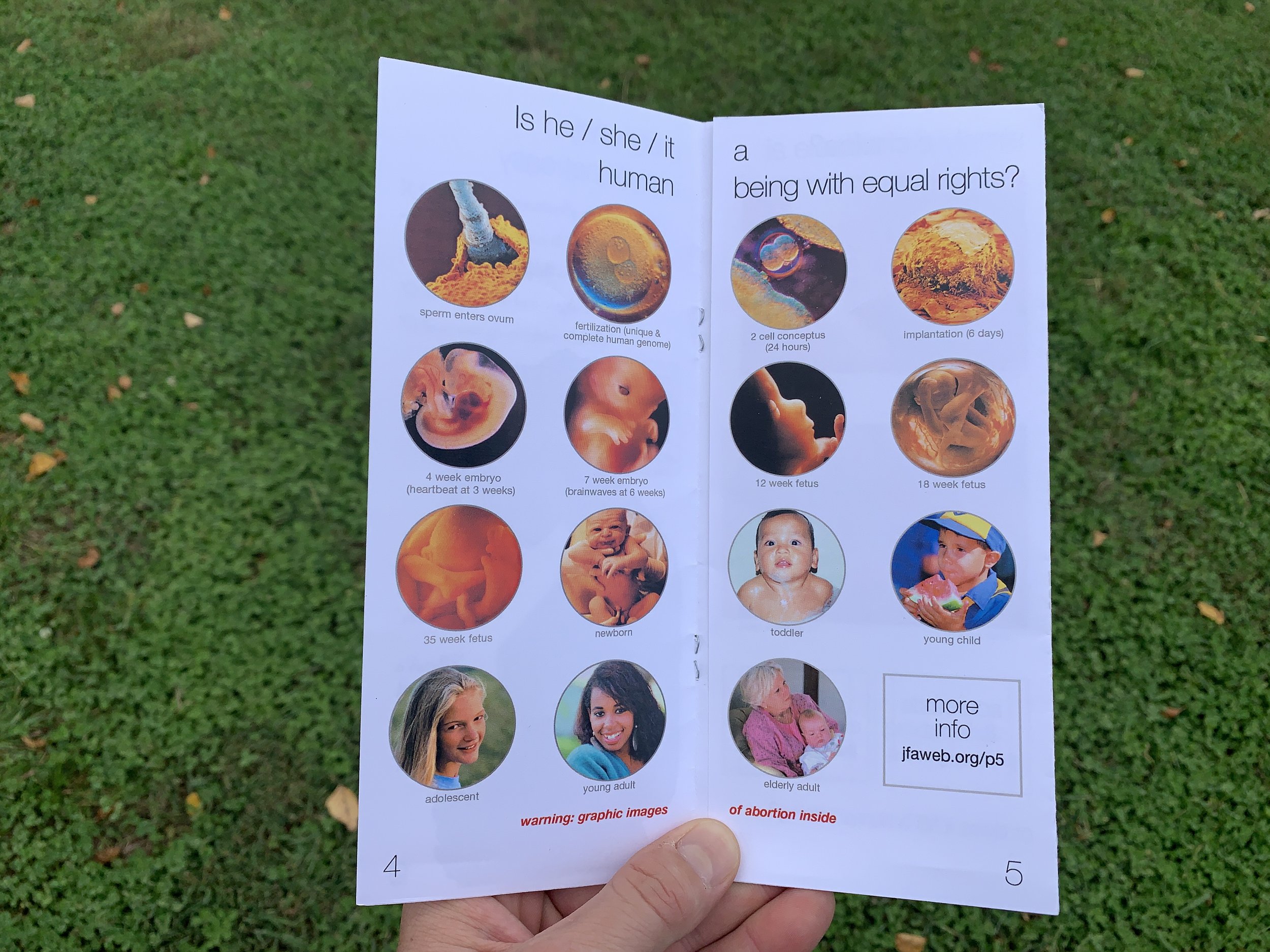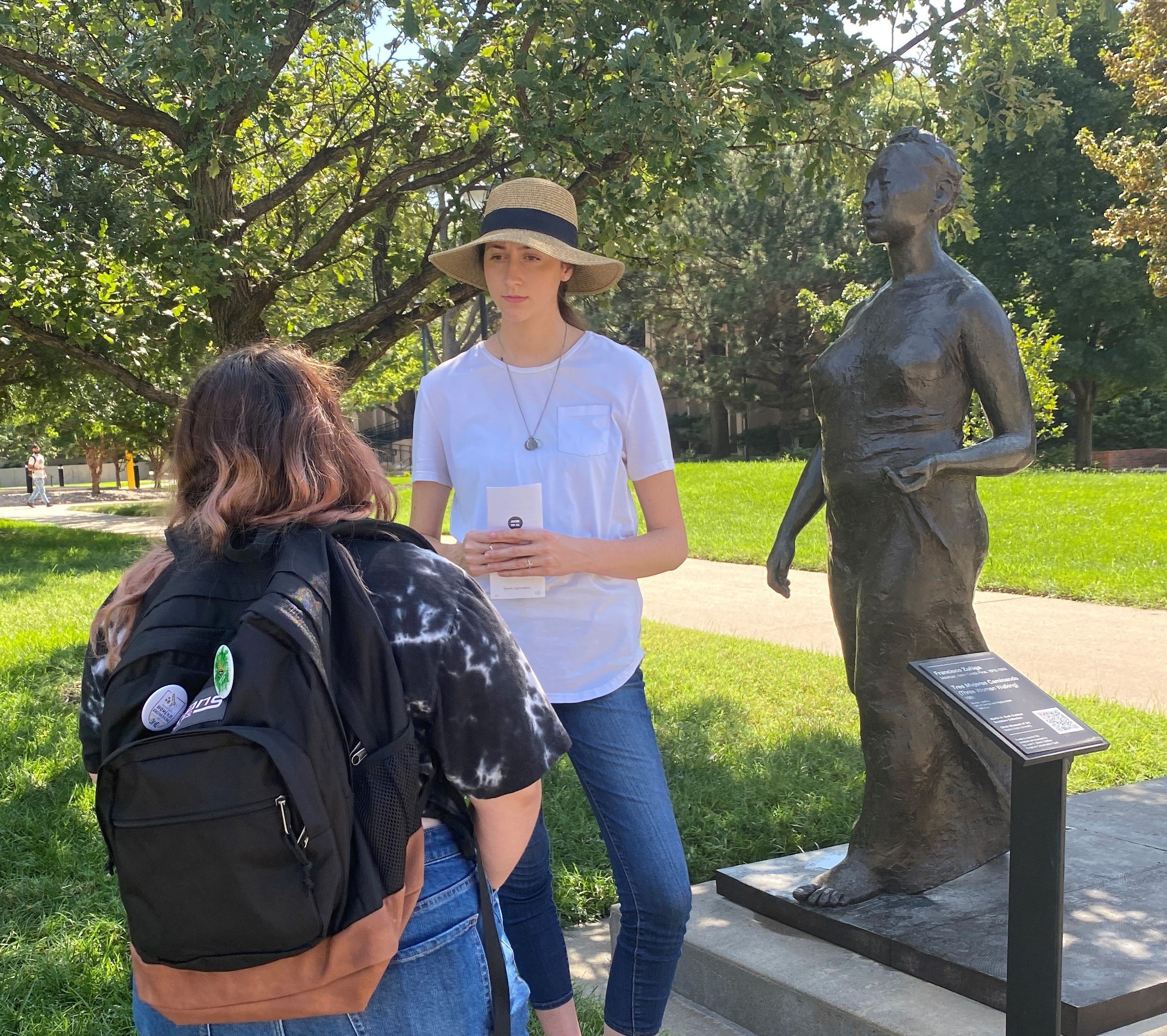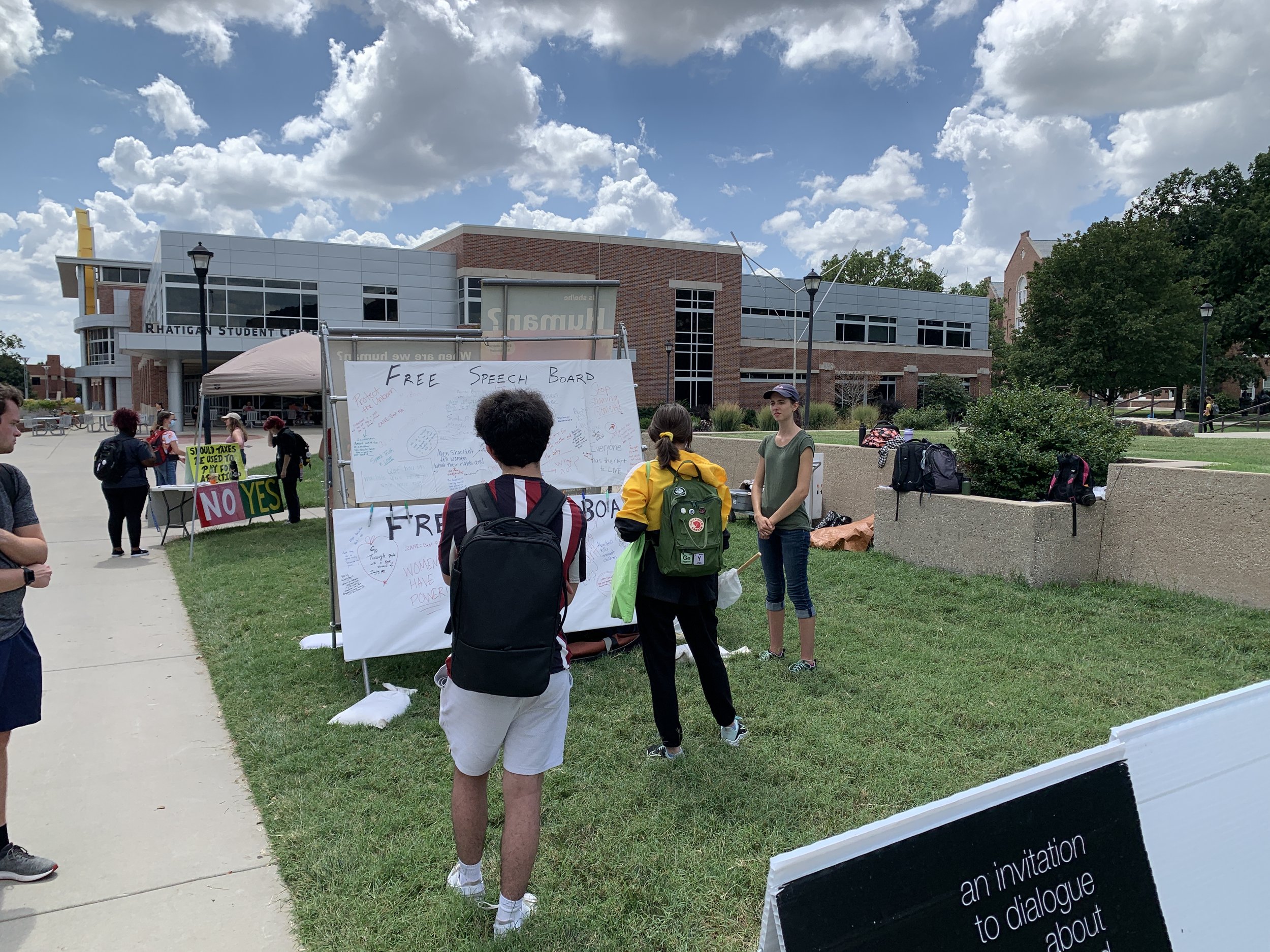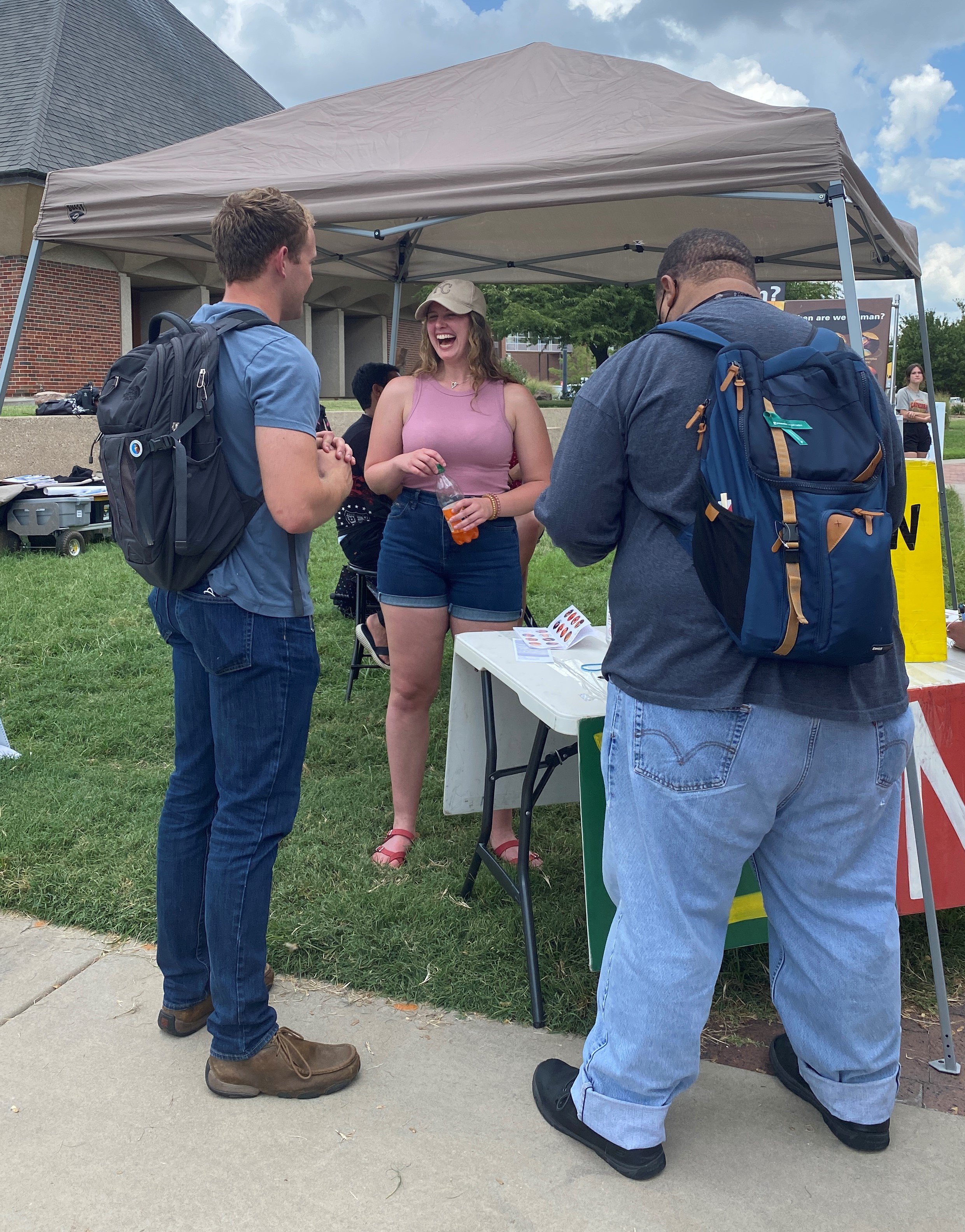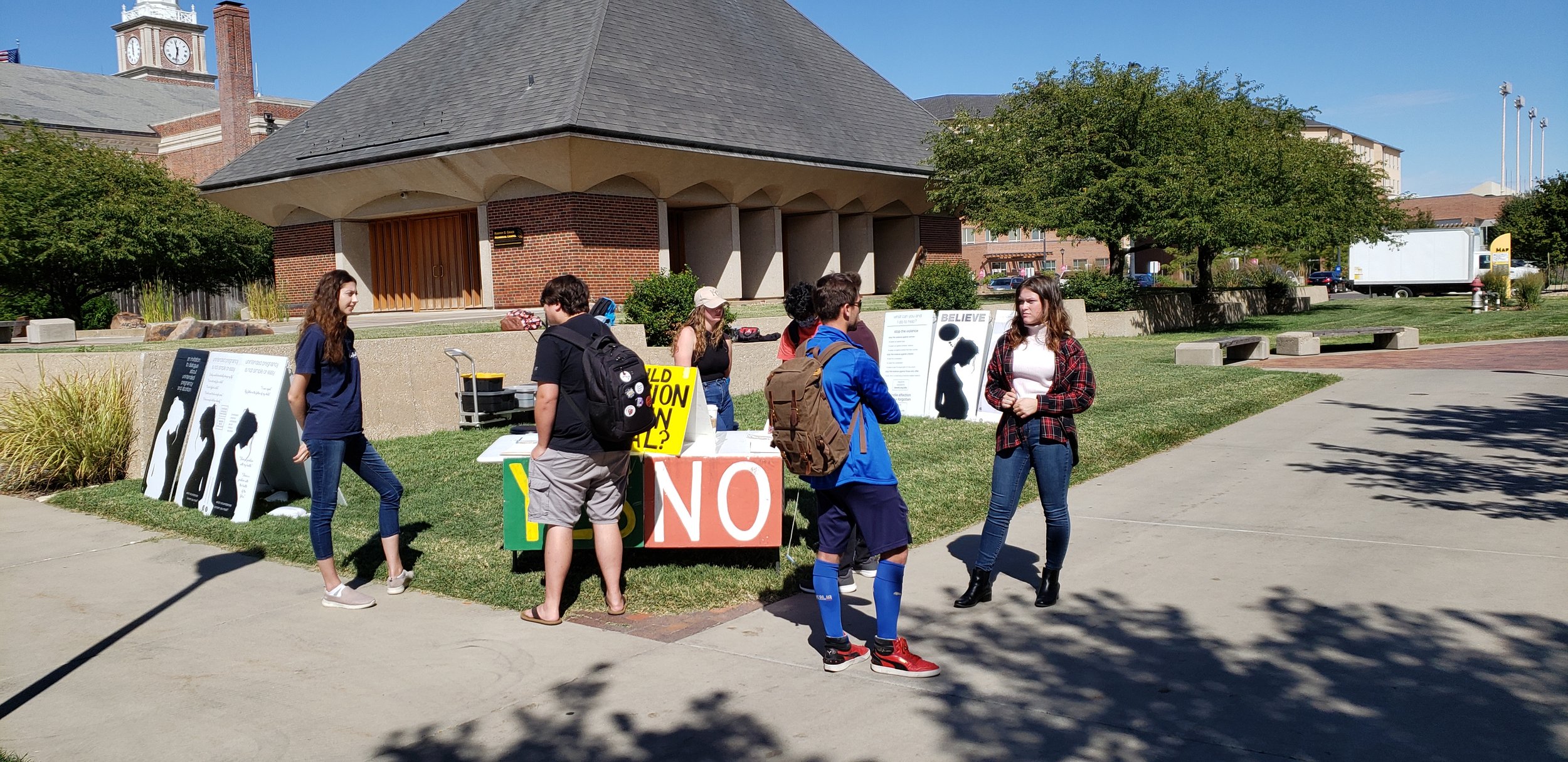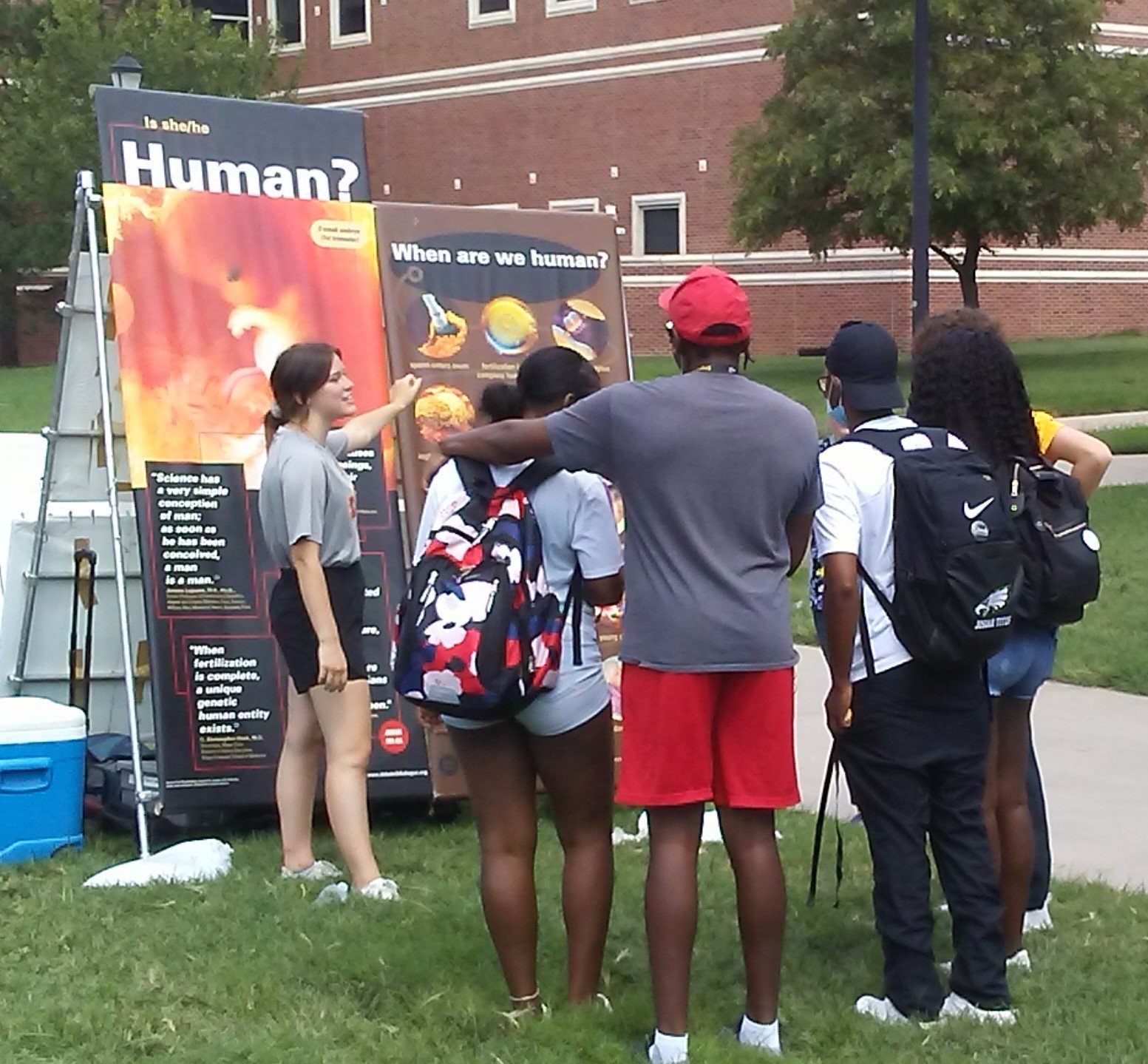Jack had talked to someone at our outreach the previous day, so when I asked him where he drew the line on human rights, he was ready with an answer. “At eighteen weeks,” he said. Through a few minutes of clarifying questions from me, he stated that he believed the unborn was a human being biologically, but that the basic right to life began when brain processing was such that the unborn could respond to sound.
He had another reason to draw the line at about eighteen weeks, though: viability. Again, I asked a few questions to clarify what he meant, and he confirmed that he meant that when the unborn could survive outside the womb, even if she required technology, she would have the basic right to life.
“Doesn’t progress in technology move the point of viability earlier and earlier?” I asked.
“That’s a really good point,” Jack pondered. He and I agreed human rights could not be determined by a criterion that could be moved from year to year by technological advances. The first change of mind.
I then raised a problem for Jack to solve. “If all of us walking around the campus deserve equal treatment, we must have something the same about us that demands that we be treated equally. But what is the same about us?”
He had raised the possibility that “brain processing” was the thing that made the unborn valuable at about eighteen weeks. I asked if he meant brain processing itself. When he said, “Yes,” I pointed out that brain processing is something that comes in degrees – we can have more or less of it. Since it’s not something we all have equally, it cannot ground equal rights. He saw the problem.
I gave him another option, though. If he framed his explanation for equal rights as “that we have brain processing at all” then it would be an all-or-nothing property that could potentially ground equal human rights. It was true that all of the adults whose rights we were discussing in the vicinity of the outreach at UTSA did have the property of “having brain processing at all,” and they had that property equally. If Jack was right that this adjusted criterion was the reason for basic rights, then that would account for the equal rights of adults, and it would account for the fact that infants also share those equal rights. In fact, the basic right to life would then extend into the womb to approximately the point he had picked, at eighteen weeks.
I pointed out, though, that this would present an additional problem: then many animals, such as dogs, would also have equal rights to the rest of us, because they also have the property of “having brain processing at all.” Jack made a predictable move at this point and added two additional criteria. “You don’t just have to have ‘brain processing at all’ to have equal rights. You also have to be viable and human.”
I asked him if he could give me an independent reason to believe that value should be based on these three things in combination. I was looking for an independent reason other than “It saves my view that the unborn should only be protected after eighteen weeks, and that whatever rights animals deserve, they shouldn’t be equal to humans.”
He saw the point of my question, and he quickly saw what philosophers would call the ad hoc nature of his argument. His only reason for adjusting his argument was to save it from the implications I drew from it.
I could see the wheels turning. My explanation for equal rights was also on the table – human nature. But the implications of that view were also clear: if human nature is the thing that we all share equally that demands that we be treated equally, then the unborn should be treated equally, too, because the unborn has that same human nature.
“Okay, you’ve convinced me,” he said. “I agree that abortion should only be legal if the mother’s life is in danger.” A second change of mind.
Unlike many students I talk to, who feel they have to put on confident airs or defend their arguments at all costs, Jack clearly wanted something more than to impress me. He wanted to understand truth. He got the truth, and I ended up impressed with him anyway – especially with his humble spirit.
I hadn’t taken a posture of trying to change Jack’s mind. Our conversation functioned more like a mirror, reflecting back to Jack what I heard him telling me. He responded like the happy young chap about to make a business proposal who barely remembers to check the mirror and finds a spot of mustard left unceremoniously on his chin by his lunchtime liverwurst. No one wants to be oblivious to his real state of affairs. There were two factors, though, that especially caused my mirror to be helpful to Jack:
Without the skills of clear thinking, the mirror would have failed to reflect certain portions of the image properly. Because I knew the questions to ask, the exact image emerged for Jack. Mastering clear thinking skills takes work, but you can learn to create a helpful reflection for someone like Jack. To take practical steps to begin developing these skills, see www.jfaweb.org/clear-thinking.
The image would have become blurry or distorted like that of a carnival mirror had I not had an attitude of humility and goodwill. If I had needed to show Jack my intellectual prowess, he might have felt the need to take me down a peg or two. If I had belittled his views or mocked them, it would have made it harder for him to take the truth seriously. He might have felt the need to defend turf, and he would have been distracted from the truth altogether.
Throughout our conversation, I brought an attitude of partnering to find truth together. I considered his arguments as if they might be true. Because he was worth my time, his arguments were worth my best efforts to evaluate them with him. He looked in the mirror that our conversation was presenting to him, saw his views for what they were, and decided to make a change right then.
I sensed that our work was not finished, though, because Jack and I had not yet confronted the two thorniest aspects of the topic, especially when combined as an argument for legal abortion: bodily rights and rape. Instead of assuming the conversation had been sufficient as a mirror, I decided to turn it into a window. That’s when Jack had his third moment of truth. I’ll explain in Part 2 below.
- Steve Wagner, for the JFA Team
Note: Steve’s conversation with “Jack” took place in March 2013. This report was originally published later that year. Special thanks to John Michener of Oklahomans United for Life for his editing on this piece in 2013. This post has been updated in minor ways and can be shared via www.jfaweb.org/mirror-and-window.




